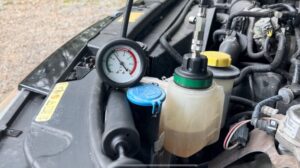Upgrade Your Drive with Rumanza CVT NSIII
Benefits & Features
The automotive industry is undergoing rapid advancements, with manufacturers continuously innovating to improve fuel efficiency, driving comfort, and engine performance. One of the most critical yet often overlooked components in modern vehicles is the transmission system, specifically the Continuously Variable Transmission (CVT). Unlike traditional automatic transmissions, CVTs provide seamless gear transitions, leading to smoother acceleration, better fuel economy, and reduced engine strain.
Understanding CVT Technology and the Need for Specialized Fluid
How CVT Works
A Continuously Variable Transmission (CVT) operates without fixed gear ratios. Instead, it uses a belt-and-pulley system (or chain-driven mechanism in some models) to provide infinite gear ratios, ensuring the engine runs at its most efficient RPM at all times.
Key advantages of CVT over traditional transmissions:
- Smoother acceleration (no gear shifts)
- Improved fuel efficiency (optimal engine power delivery)
- Reduced mechanical wear (fewer moving parts)
Why CVT Fluid is Critical
Unlike conventional automatic transmission fluid (ATF), CVT fluid must:
- Maintain precise friction control for belt/pulley grip
- Withstand extreme heat without breaking down
- Prevent wear on sensitive transmission components
Using the wrong fluid can lead to:
- Slipping belts
- Overheating and fluid degradation
- Premature transmission failure
This is where Rumanza CVT NSIII excels—its advanced synthetic formulation is designed specifically for modern CVT systems.
Why Rumanza CVT NSIII is the Best Choice for Your Vehicle
Unmatched Fuel Efficiency
How it works:
- Low-viscosity formula reduces internal friction.
- Optimized lubrication ensures smooth pulley movement.
- Reduces parasitic drag, improving mileage by 3-5% compared to standard fluids.
Real-world impact:
- Longer highway drives with better fuel economy
- Reduced carbon footprint due to efficient combustion
Superior Smoothness in Gear Transitions
Problem with inferior fluids:
- Harsh shifts or jerky acceleration
- Delayed response in stop-and-go traffic
How Rumanza CVT NSIII solves it:
- Precision-engineered friction modifiers ensure instantaneous belt adjustment.
- Eliminates “rubber-band effect” (common in low-quality CVT fluids).
Result:
- Buttery-smooth acceleration
- Sportier, more responsive feel
Exceptional Thermal Stability (Even Under Extreme Conditions)
Challenges for CVT fluids:
- High temperatures cause oxidation and sludge formation.
- Cold starts thicken fluid, reducing lubrication.
Rumanza CVT NSIII’s solution:
- Advanced synthetic base oils resist thermal breakdown.
- Stays fluid in sub-zero temperatures for quick cold starts.
- Longer transmission life (even in heavy traffic or towing).
- Consistent performance in both summer heat and winter cold.
- Extended Transmission Lifespan with Advanced Wear Protection
Common transmission issues:
- Metal fatigue from belt/pulley friction.
- Corrosion due to moisture and oxidation.
How Rumanza CVT NSIII protects:
- Anti-wear additives form a protective layer on components.
- Detergents prevent sludge buildup, keeping the system clean.
Outcome:
- 50% longer transmission life compared to generic fluids.
- Lower repair costs over the vehicle’s lifetime.
- Longer Drain Intervals = Lower Maintenance Costs
Standard CVT fluids require replacement every 30,000–50,000 miles.
Rumanza CVT NSIII lasts up to 60,000–80,000 miles due to:
- High-quality synthetic base oils resisting degradation.
- Oxidation inhibitors extending fluid life.
Savings:
- Fewer fluid changes = less downtime & cost.
- Reduces environmental waste from frequent disposal.
Technical Features of Rumanza CVT NSIII
- Optimized Friction Control for Seamless Power Delivery
- Precision friction modifiers adjust to driving conditions.
- Prevents belt slippage under heavy acceleration.
- Cold-Weather Performance Enhancements
- Pour point of -40°F (-40°C) ensures instant lubrication in winter.
- No sluggishness during cold starts.
- OEM-Approved Formulations
- Meets specifications for Nissan, Honda, Toyota, Subaru, and more.
- Safe for hybrid CVT systems (e.g., Toyota Hybrid Synergy Drive).
- Eco-Friendly Composition
- Low-phosphorus additives reduce environmental impact.
- Biodegradable elements for sustainable motoring.
How Rumanza CVT NSIII Compares to Competitors
Feature | Rumanza CVT NSIII | Conventional CVT Fluid |
Fuel Efficiency | ✅ 3-5% improvement | ❌ No significant boost |
Smoothness | ✅ Zero shudder | ❌ Jerky shifts |
Thermal Stability | ✅ Resists 300°F+ temps | ❌ Breaks down faster |
Drain Interval | ✅ 60,000–80,000 miles | ❌ 30,000–50,000 miles |
Wear Protection | ✅ 50% longer lifespan | ❌ Standard protection |
Who Should Use Rumanza CVT NSIII?
- Daily Commuters
- Stop-and-go traffic demands smooth shifts.
- Better fuel savings over time.
- Performance Enthusiasts
- Sharper throttle response for spirited driving.
- Reduced transmission heat during aggressive acceleration.
- Fleet & Commercial Vehicles
- Lower maintenance costs with extended drain intervals.
- Improved reliability for high-mileage use.
- Hybrid & Electric Vehicles (e-CVT)
- Compatible with hybrid transmissions.
Enhances regenerative braking efficiency.
Latest Innovations in CVT Fluid Technology
The next-generation CVT fluids focus on:
- Smart adaptive additives (adjusting to driving style).
- Even lower viscosity for electric vehicle (EV) compatibility.
- Nanotechnology for ultra-thin protective films.
Rumanza CVT NSIII incorporates these trends, making it a future-proof choice.
Conclusion: Is Rumanza CVT NSIII Worth It?
Absolutely. Whether you drive a compact sedan, SUV, or hybrid, upgrading to Rumanza CVT NSIII ensures:



Make the switch today and experience the ultimate in CVT performance!
FAQs

Radiator Stop Leak UAE: Quick Fix for Vehicle Cooling System Leaks
Radiator Stop Leak UAE: Quick Fix for Vehicle Cooling System Leaks Discover More Introduction: The Unforgiving UAE Climate and Your Vehicle’s Lifeline The United Arab Emirates’ automotive landscape is defined by extremes. Ambient temperatures that regularly surpass 45°C (113°F), coupled with intense urban congestion and long, high-speed desert drives, create a perfect storm of thermal stress for every vehicle. In this environment, your engine cooling system is not merely a subsystem; it is the single most critical component preventing catastrophic engine failure.

What Type of Transmission Oil in UAE Does My Car Need? Your Complete Guide
What Type of Transmission Oil in UAE Does My Car Need? Your Complete Guide Discover More Navigating the vast, sun-baked highways of the United Arab Emirates—from the dynamic urban sprawls of Dubai and Abu Dhabi to the majestic desert dunes and the tranquil mountain passes of the Hajar range—places extraordinary mechanical and thermal stress on every component of your vehicle. While conscientious drivers often prioritize engine oil changes, the vital lifeblood safeguarding the transmission, the complex heart of your car’s

Guide to UAE Turbine Oil Selection Application & Management for Industrial Facilities
Guide to UAE Turbine Oil Selection, Application, and Management for Industrial Facilities Discover More In the hyper-competitive industrial landscape of the United Arab Emirates, where operational excellence directly translates to economic advantage, turbine lubrication represents a critical nexus of reliability engineering and strategic asset management. This comprehensive guide, developed with technical insights from Rumanza Lubricants, provides an unprecedented deep dive into the science, selection criteria, and life-cycle management of turbine oils specifically engineered for the extreme operating conditions of the

Synthetic vs. Mineral Hydraulic Oil in UAE : Which is Best for Your Operation?
Synthetic vs. Mineral Hydraulic Oil in UAE : Which is Best for Your Operation? Discover More Across the dynamic landscape of the United Arab Emirates—from the megaprojects of Dubai Marina to the intricate conveyor systems of Jebel Ali Port, from the massive hydraulic shovels in Al Dhafra quarries to the precision automated lines in Abu Dhabi’s industrial cities—the silent, powerful force of hydraulics is indispensable. These systems convert fluid power into monumental force and precise motion. At the core of

What is a Pour Point Depressant? | Benefits, Uses & How It Works Mechanism
What is a Pour Point Depressant? | Benefits, Uses & How It Works Mechanism Discover More In the intricate world of lubricant formulation, few additives play as critical yet understated a role in cold-weather operability as Pour Point Depressants (PPDs). These specialized chemical compounds are the linchpin that prevents machinery from seizing up when temperatures plummet. This in-depth guide goes beyond the basics, exploring the sophisticated chemistry, detailed mechanism, nuanced benefits, and practical considerations of PPDs. We will also examine the

Guide to Gasoline Engine Oils for UAE’s Extreme Climate: Engineering Peak Performance
Gasoline Engine Oils for UAE’s Extreme Climate: Engineering Peak Performance Discover More In the heart of the Arabian Peninsula, the United Arab Emirates stands as a testament to human ambition, with its engineering marvels and endless highways. Yet, this environment of soaring achievement is also one of the most punishing on Earth for machinery. For your vehicle—whether a nimble city sedan, a powerful family SUV, or a high-performance sports car—the UAE’s climate is a relentless adversary. The choice of engine

What are Polyol Ester Oils & Lubricants – Properties & Applications
What are Polyol Ester Oils & Lubricants – Properties & Applications Discover More In the intricate world of industrial machinery, automotive engines, and advanced refrigeration systems, the choice of lubricant is not merely a maintenance task—it’s a critical engineering decision. While conventional mineral oils have served us for over a century, the demands of modern technology require fluids that can perform under extreme pressure, temperature, and environmental stress. This is where synthetic lubricants, specifically Polyol Ester oils, come to the forefront.

Guide to Choosing the Right Lithium Complex Grease in UAE
Guide to Choosing the Right Lithium Complex Grease in UAE for Unbeatable Performance Discover More In the heart of a region defined by its ambition and extreme climate, the machinery that builds and powers the UAE operates under immense pressure. From the towering cranes sculpting Dubai’s skyline to the massive haul trucks in Abu Dhabi’s industrial zones and the relentless conveyor systems in Jebel Ali Port, every moving part is a critical link in the chain of progress. Protecting these
